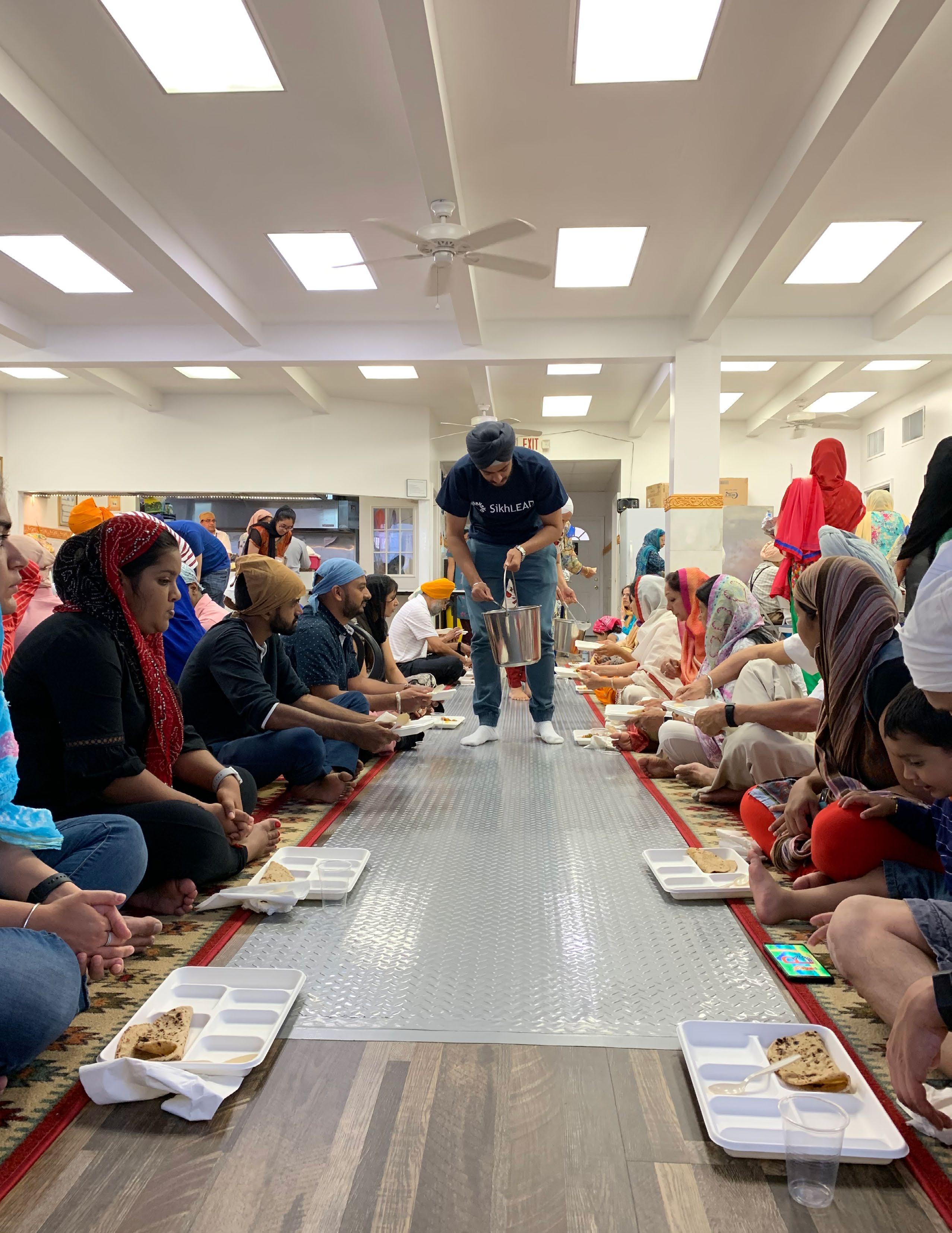
4 minute read
Executive Summary
Project Overview Despite Sikhs having lived in the United States for over a century, limited information is known about the Sikh American community. Up to this point there has not been a national survey that measures the multiple facets of the lives of Sikhs living in the United States. SALDEF, a national Sikh American civil rights, advocacy, and education organization, has the mission to empower Sikh Americans by building dialogue, deepening understanding, promoting civic and political participation, and upholding social justice and religious freedoms for all Americans. To address the lack of information on the experiences, perspectives, and advocacy needs of Sikh Americans, SALDEF developed the first National Sikh American Survey. The survey’s findings will help policymakers, researchers, foundations, elected officials, news organizations, and Sikh organizations understand Sikhs across the United States.
The SALDEF research team developed a survey of 48 questions across eight topics: demographics, Sikh at work and school, cultural connection, political engagement, use and perception of news, access to resources, discrimination, and awareness of SALDEF. The survey was open to all Sikhs 13 years of age or older, currently living in the United States. The survey was programmed on SurveyMonkey and was open for 27 days. It had a final sample of 1,861 responses.
Advertisement
Survey Results The survey revealed many important experiences of the respondents, including the following:
Sikh at Work and School
• 87% of employed respondents had no or few other Sikhs at their workplace. 62% of current student respondents had no or few other Sikhs at their school.
Cultural Connection
• Respondents had, on average, at least three Gurdwaras within 50 miles from where they lived. Respondents living in the Northeast had the most
Gurdwaras near them, whereas those living in the Midwest had the least. 44% of respondents indicated that they explain different aspects of Sikh often or very often.
Political Engagement
• 93% of all adult citizen respondents reported that they were registered to vote. 89% of respondents said they did vote in 2016, as compared to 96% who plan to vote in 2020. 71% of respondents ranked racial justice and 69% ranked health care in their top five most important policy issues.
Respondents commonly reported signing an online petition (77%), donating money to a campaign or cause (61%), liking or following a campaign or organization online (57%), and posting on social media about an issue (57%), within the past 12 months.
Only 6% of respondents felt that elected officials always hear the needs of the Sikh American community.
Discrimination
• 15% of respondents said they only sometimes felt safe practicing Sikh, with respondents living in the South feeling the least safe. 58% of respondents indicated that they have been bullied or harassed because of their Sikh identity. Respondents living in the West reported higher rates of bullying or harassment (60%). 63% of respondents who wear turbans indicated that they had been discriminated against for wearing one. Those living in the South experienced the highest rates of turban-related discrimination (70%).
Recommendations Based on the results of the survey, the research team developed seven recommendations:
Policymakers and elected officials must help eliminate discrimination against Sikh Americans. Strategies could include promoting awareness about Sikh through school curriculum, publicly engaging with and learning from Sikh communities, and improving Sikh Americans’ ability to report bullying and harassment.
Recommendation 2: Utilize the political power of Sikh Americans in national and local politics.
National political campaigns should work on harnessing the power of Sikh Americans by mobilizing them to support their work and candidacy.
Recommendations 3: Engage Sikh Americans in conversation on equality
Since this report revealed high levels of political activity among respondents, policymakers should hear Sikh Americans’ voices and perspectives when developing policies on issues they care about, such as social justice.
Recommendation 4: Hold news organizations to a higher standard when discussing Sikh
Journalists and media professionals should educate themselves on biases against Sikhs. Policymakers and elected officials have a responsibility to facilitate this education process to serve their constituents, mitigate the harm Sikh Americans face, and prepare to challenge these misconceptions in the media.
Recommendation 5: Further Investigate and Engage outreach to Sikh Americans living in the Midwest and the South of the United States
Sikh organizations must focus their resources to connect with Sikhs living in the South and Midwest and introduce programs that increase their feelings of safety and connection.
Recommendation 6: Promote the discussion of Sikh in school curriculum
Sikh organizations should focus on promoting the incorporation of accurate information on Sikh into school curriculums at all levels.
Recommendation 7: Develop research materials in both English and Punjabi
Sikh organizations should offer future iterations of the survey, or any other information, in both Punjabi and English to cover a wider base of the Sikh community.



